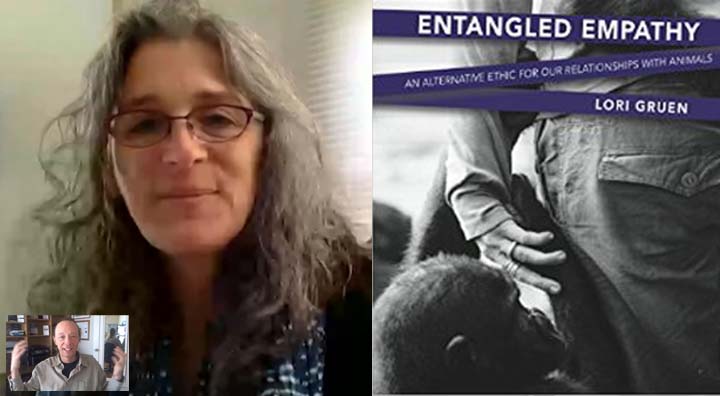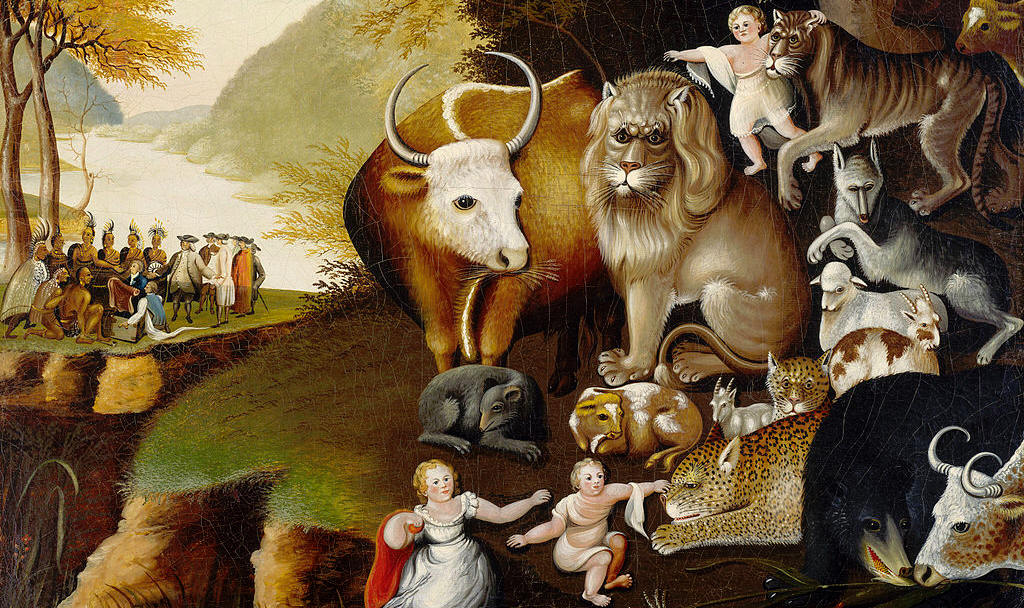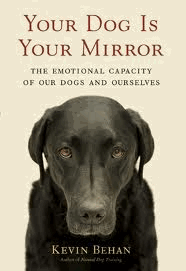|
|
Conference
- Panels
-
Possible Panels
- Facebook
Event -
Education -
Volunteer - [Planning]
International Online Conference on:
How Might We Build a
Culture of Empathy and Compassion?
Permanently Ongoing
Sub Conference: Empathy
with Animals and Nature
Interviews and Panels
|
|
|
|
|
Entangled Empathy: From an
Ethics of Justice to an Ethics of Empathy
Lori Gruen |
|

|
|
Lori Gruen is Professor of Philosophy,
Feminist, Gender, and Sexuality Studies, and Environmental Studies at
Wesleyan University where she also coordinates Wesleyan Animal Studies. Her
work lies at the intersection of ethical theory and practice, with a
particular focus on issues that impact those often overlooked in
traditional ethical investigations, e.g. women, people of color, non-human
animals. She has published extensively on topics in animal ethics,
ecofeminism, and practical ethics more broadly. Lori
is author of,
Entangled Empathy,
An Alternative Ethic for Our Relationships with Animals.
"Empathy is also something we are taught to "get over"
or grow
out of. We learn to quash our caring reactions for
others, and
our busy lives and immediate preoccupations provide
excuses for not developing empathy."

Edward Hicks -
The Peaceable Kingdom
(Wikipedia)
From the book
description, "In
Entangled Empathy, scholar and activist Lori Gruen argues that rather than
focusing on animal "rights," we ought to work to make our relationships
with animals right by empathetically responding to their needs, interests,
desires, vulnerabilities, hopes, and unique perspectives. Pointing out
that we are already entangled in complex and life-altering relationships
with other animals, Gruen guides readers through a new way of thinking
about - and practicing - animal ethics."
Sub Conferences:
Science
|
|
|
|
Debbie Custance:
Study on Dogs having Empathy for People in Distress
|
 |
 |
Debbie Custance is a lecturer at Goldsmiths College,
Department of Psychology, London. She coauthored a study titled,
'Empathic-like responding by domestic dogs to distress in
humans: An exploratory study'. |
The study tested how dogs respond to someone pretending
to cry and be in distress. The majority of dogs came over to the
person crying in a way that seemed to express empathic
concern. "When the stranger pretended to cry,
rather than approaching their usual source of comfort, their owner, dogs
sniffed, nuzzled and licked the stranger instead. The
dogs’ pattern of response was behaviorally consistent with an expression
of empathic concern..."
Sub Conference:
Science
and
Animals & Nature
|
|
|
|
Stanley Coren: How to Build a Culture of Empathy with Dogs
|
 |
 |
Stanley Coren is Professor Emeritus in the Department of
Psychology at the University of British Columbia.
He is the author of many best-selling
books on dogs
including,
'How Dogs Think: Understanding the Canine Mind',
'How To Speak Dog'
and
'The Modern Dog'.
|
Stanley
says empathy is the glue that connects us and that "there is a consensus
that the mind of a dog is very similar in capacity and behaviors to the
mind of a human 2 to 3-year-old."
"Recent research demonstrates that dogs have empathy and
recognize when humans are emotionally distressed. Their response is an
attempt to comfort the unhappy person as best they can."
One way to foster empathy in children is
for children to have a dog, which helps them learn how to connect and
relate to others. The dog will not judge them but offers empathic
connection.
Sub Conference:
Animals & Nature
|
|
|
|
Lee Charles Kelley:
How to Build a Culture of Empathy with Dogs
|
|
 |
|
Lee Charles Kelley is a dog trainer and has written articles
about empathy in dogs. He writes a blog in Psychology Today called
'My
Puppy, My Self: How dogs make us human'. Lee and I talked
about the nature of empathy in dogs from Lee's perspective of working with
dogs as a trainer and having been an actor. We also reviewed the study,
'Empathic-like responding by domestic dogs to distress in humans', by
Debbie Custance,
and the related articles by
Stanley Coren
and Kevin Behan.
Sub Conference:
Animals & Nature |
|
|

















